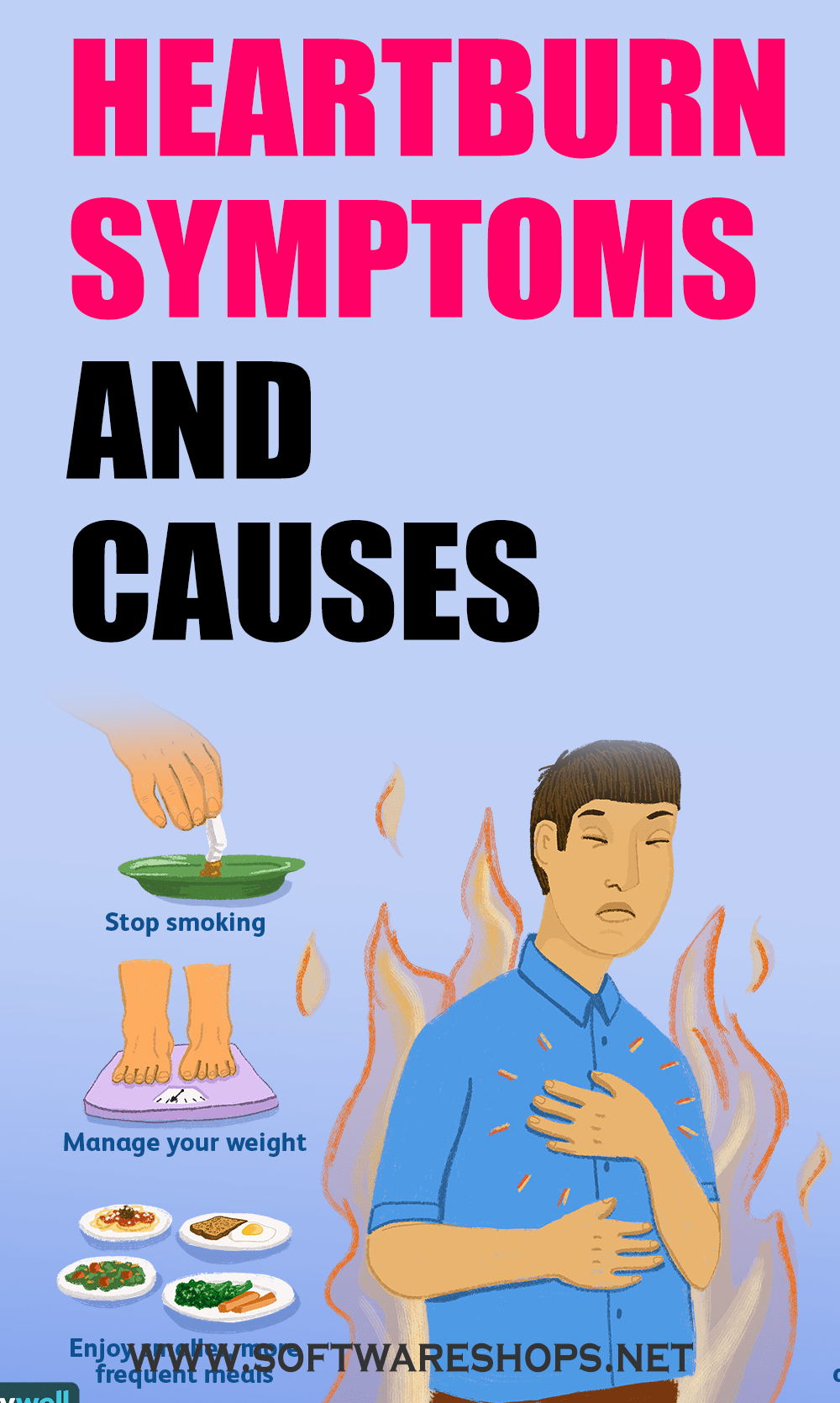Overview
Heartburn is a burning pain in your chest, just behind your breastbone. The pain is often worse after eating, in the evening, or when lying down or bending over.
Occasional heartburn is common and no cause for alarm. Most people can manage the discomfort of heartburn on their own with lifestyle changes and nonprescription medications.
Heartburn that is more frequent or interferes with your daily routine may be a symptom of a more serious condition that requires medical care.
Symptoms
Symptoms of heartburn include:
A burning pain in the chest that usually occurs after eating and may occur at night
Pain that worsens when lying down or bending over
A bitter or acidic taste in the mouth
When to see a doctor
Chest pain may be a symptom of a heart attack. Seek help right away if you have severe chest pain or pressure, especially when combined with pain in the arm or jaw or difficulty breathing.
Make an appointment with your health care provider if:
Heartburn occurs more than twice a week
Symptoms persist despite use of nonprescription medications
You have difficulty swallowing
You have persistent nausea or vomiting
You have weight loss because of poor appetite or difficulty eating
Causes
How GERD occurs in the esophagus
How heartburn and GERD occurOpen pop-up dialog box
Heartburn occurs when stomach acid backs up into the tube that carries food from your mouth to your stomach (esophagus).
Typically, when food is swallowed, a band of muscle around the bottom of the esophagus (lower esophageal sphincter) relaxes to allow food and liquid to flow down into the stomach. Then the muscle tightens again.
If the lower esophageal sphincter isn’t working as it should, stomach acid can flow back up into the esophagus (acid reflux) and cause heartburn. The acid backup may be worse when you’re bent over or lying down.
Risk factors
Certain foods and drinks can trigger heartburn in some people, including:
Spicy foods
Onions
Citrus products
Tomato products, such as ketchup
Fatty or fried foods
Peppermint
Chocolate
Alcohol, carbonated beverages, coffee or other caffeinated beverages
Large or fatty meals
Being overweight or pregnant also can increase your risk of experiencing heartburn.
Complications
Heartburn that occurs frequently and interferes with your routine is considered gastroesophageal reflux disease (GERD). GERD treatment may require prescription medications and, occasionally, surgery or other procedures. GERD can seriously damage your esophagus or lead to precancerous changes in the esophagus called Barrett’s esophagus.
Note- The information provided on this page is for general purposes only and should not be taken as professional advice. All the content provided on this page is my own creativity.
Did you enjoy reading this post? If you did, please take a second to share it with your friends. Sharing is caring! Thank you So Much.

